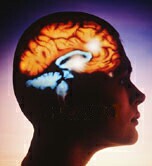Aerobic activity offers many benefits, but study needs to be duplicated, researcher says
FRIDAY, April 3, 2015 (HealthDay News) — Aerobic exercise might boost neurocognitive function in people with schizophrenia, according to a small study published online March 23 in the Schizophrenia Bulletin.
The research included 33 schizophrenia patients who were randomly assigned to receive one of two treatments. One group was given standard psychiatric treatment (the control group). The other took part in a 12-week aerobic exercise program using active-play video games and standard exercise equipment. The patients in the exercise group also continued to receive standard psychiatric care.
By the end of the study period, aerobic fitness improved by 18 percent in the exercise group. It fell by 0.5 percent in the control group. Neurocognitive function improved by 15 percent in the exercise group and fell by 2 percent in the control group. “Our results indicate that poor aerobic fitness represents a modifiable risk factor for cognitive dysfunction in people with schizophrenia, for which aerobic exercise training offers a safe, non-stigmatizing, and side-effect-free intervention,” lead author David Kimhy, Ph.D., of the New York State Psychiatric Institute in New York City, said in an institute news release.
The researchers said that a protein, brain-derived neurotrophic factor, which increases with physical activity, may be “a potential mechanism” for the exercise-related improvements in schizophrenia patients’ mental function. “If replicated, our findings may lead to the integration of aerobic exercise into standard psychiatric treatment for people with schizophrenia and other severe mental health problems, Kimhy said.
Copyright © 2015 HealthDay. All rights reserved.








